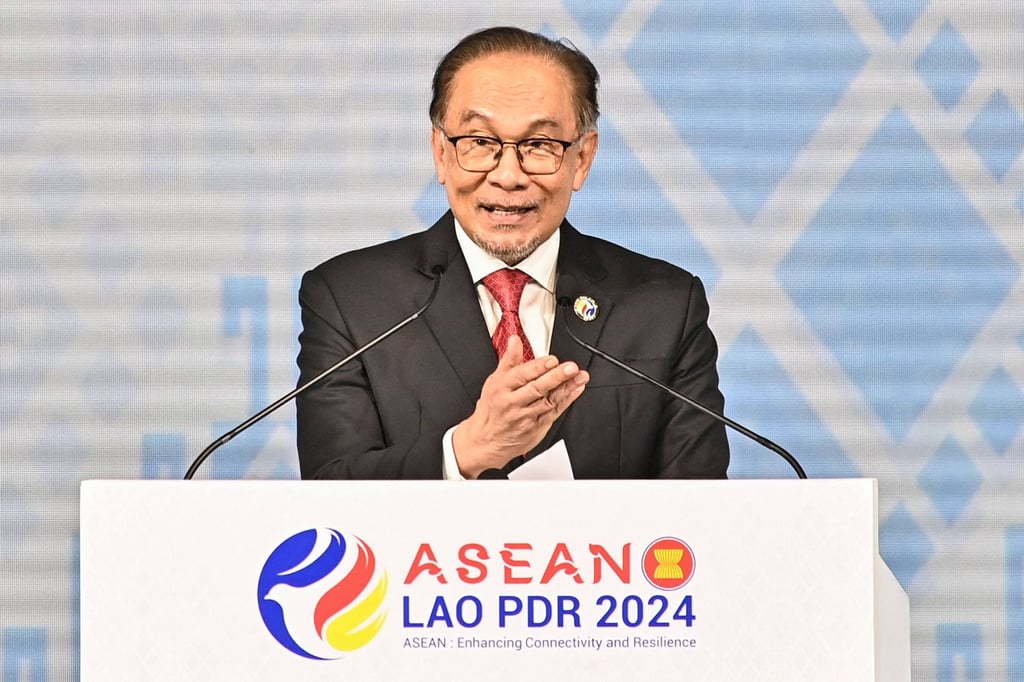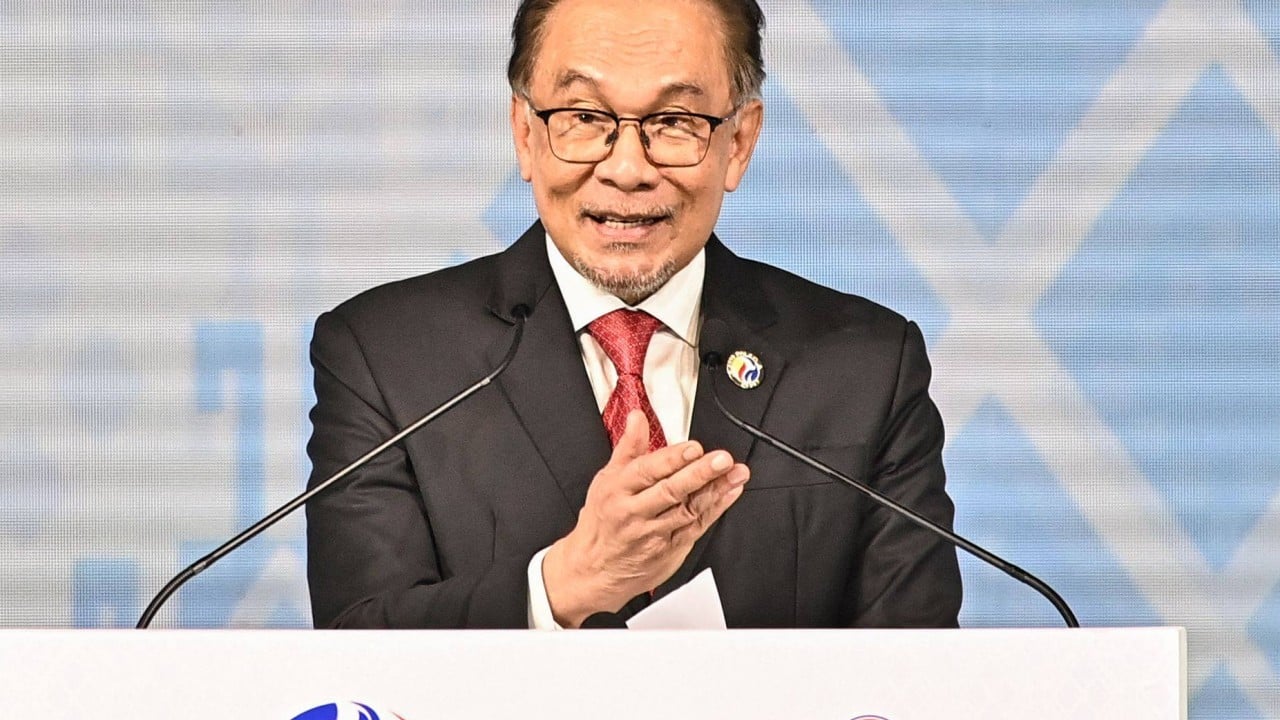As Malaysia prepares to assume the Asean chair next year, the nation will face two pressing issues: the South China Sea dispute and the ongoing conflict in Myanmar. Both challenges will require a delicate balance, and expectations are high for Prime Minister Anwar Ibrahim to guide the bloc towards unity.
Advertisement
At the Association of Southeast Asian Nations summit in Vientiane on October 9, Anwar spoke about how vital dialogue and cooperation was to shield the region from external interference.
“As global tensions continue to rise and polarisation appears to prevail over integration, cracks and divisions within Asean run the risk of being exploited to the detriment of its centrality and cohesiveness,” he warned.
Analysts believe Malaysia is well-positioned to restore Asean’s centrist orientation. The country has experience mediating regional conflicts and has taken leadership roles in significant global forums such as the Non-Aligned Movement and the Organisation of Islamic Cooperation.
“Malaysia has the advantage of having a more balanced approach and ties with both sides,” said Collins Chong Yew Keat, a foreign affairs analyst at the University of Malaya, referring to the intricate dynamics of maintaining good relations with China and the West.

For years, Asean has struggled to reach consensus on the South China Sea. China’s influence is seen to weigh heavily on member states such as Cambodia and Laos, which have received investments worth billions of US dollars from the superpower to help develop their infrastructure and economies.

